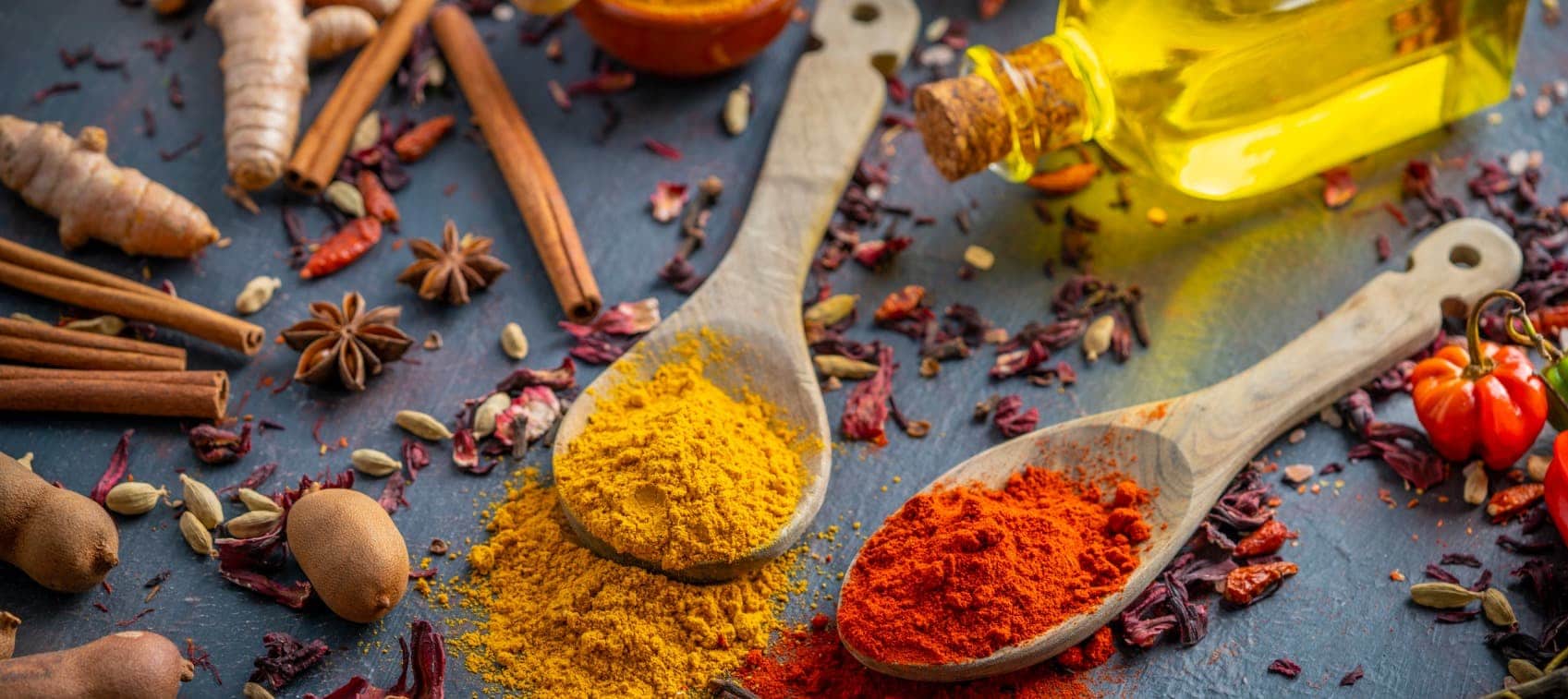
Your immune system is working hard to fight off toxins, infections, and injuries. But as your immune system works away, it can generate a lot of buildup in the area, which we call inflammation.
Minor inflammation can be great as it shows that the body is doing what it means to do. A lot of inflammation, on the other hand, can be exhausting and painful.
If you have excess inflammation, then you know the pain of feeling like your body is under immense pressure and tender to touch, despite nothing happening on the surface.
There are plenty of supplements out in the market today that claim to have anti-inflammatory properties, but which of them can truly help?
1. Curcumin
Curcumin is a polyphenol found primarily in the spice turmeric. It has been shown to target signaling molecules and reduce oxidized molecules to inhibit inflammatory pathways and temporarily alleviate associated discomfort.
Metabolic and Digestive Health
Studies have shown that curcumin improves pancreatic function by strengthening beta-cells. While this does not prevent insulin resistance, it does increase the longevity of the beta-cells and, therefore, may reduce the effects of type 2 diabetes.
Curcumin has also been shown to influence the permeability of the gut lining and bolster the diversity of the gut microbiome. These two effects together synergistically combat the effects of leaky gut and may reduce the prevalence of auto-immune and other diseases.
Anti-inflammatory
Inflammation has a positive feedback loop where it causes the rise of reactive species, which in turn, causes pro-inflammatory genes to be regulated. Pro-inflammatory agents create more inflammation and therefore, more reactive species and so on.
Curcumin’s powerful antioxidant characteristics therefore also reduce inflammation as well. However, it doesn’t stop there! Curcumin also directly downregulates nuclear factor kappa B (NF-κB).
NF-κB is a transcription factor that is made by the body in response to inflammatory cytokines (a communication molecule), stress, high-glucose, stress, pollutants, smoke, bacteria, and ultraviolet light.
Once it is made, it associates with genetic material to produce many inflammation factors. One specific variant of NF-κB is TNF-α (Tumor necrosis factor-alpha) and is directly linked to the development of many chronic and tumor-related conditions, including the following:
- Allergies
- Cancer
- Alzheimer's disease
- Cardiovascular disease
- Parkinson's disease
- Metabolic syndrome
- Multiple sclerosis
The inhibition of these nuclear factors by curcumin has been shown to alleviate some of the inflammatory effects and other burdens that some of these diseases may bring on.
Due to its powerful anti-inflammatory powers, curcumin has been heralded as an intervention for arthritis. Besides cancer, arthritis is the most well-researched area of curcumin’s potential as a natural remedy.
Curcumin has significant effects to provide relief for patients considering treatment options like ibuprofen and diclofenac sodium. This study recommended an eight to twelve-week regimen of 1000mg/day of curcumin for arthritis-related symptoms.
2. Ginger
Ginger root has two anti-inflammatory compounds called gingerol and zingerone. Studies show that these compounds reduce inflammation by inhibiting immune cells and limiting their movement.
When the immune system takes a break, it reduces inflammation and gives the body a chance to restore the antioxidants in the area. These compounds have been shown to reduce inflammation, resulting from a whole host of conditions, including breast cancer, colitis, kidney damage, Type 2 diabetes and heart disease.
Ginger has also been shown to reduce the inflammation resulting from exercise.
3. Alpha-Lipoic Acid
Alpha-Lipoic Acid (ALA) is a fatty acid made by your body that plays an essential role in metabolism and energy production. ALA inhibits pyruvate dehydrogenase kinase, which would otherwise inhibit pyruvate dehydrogenase. Pyruvate dehydrogenase allows the body to turn more pyruvate into acetyl-CoA upregulation of the Krebs cycle, enabling more energy production.
The increased movement of energy molecules down the concentration gradient allows for more energy molecules to enter the cell, having a profound effect on insulin resistance. It, therefore, may ease the burden of diseases, including type 2 diabetes and heart disease.
4. Omega-3
Omega-3 is one of the two primary polyunsaturated fatty acids that your body needs as an essential nutrient. Essential nutrients are nutrients that your body needs but cannot reproduce. Instead, they must come from diet and supplementation.
While the most nutrient-dense place to get your omega-3s comes from supplementation, Omega-3s also come from omega-3 dense foods, including fish, other seafood, nuts, and soybeans. When these omega-3 Fatty acids are taken into your body, they begin competing with the other group of polyunsaturated fatty acids, omega-6, for incorporation into the cell walls.
The battle between omega-3 and omega-6 impacts the health of your body every day. Beyond cell wall formation, omega-3 fatty acids also have many other roles in your body, including the formation of inflammatory response messengers like pro-inflammatories and anti-inflammatories, which is likely one reason why they have a strong effect on certain chronic diseases.
Omega-3 and Omega-6 Ratio
The battle between omega-3 and omega-6 is exemplified by the omega-6/omega-3 ratio. This ratio is an important health indicator, and every major lab testing company can test this ratio.
Clinical studies have shown that having an increased omega-6/omega-3 ratio has significant health implications, particularly for patients with heart disease, and other cardiovascular issues.
Because of this, many cardiologists will recommend that their patients eat multiple fish-based meals a week or take an omega-3 supplement.
Supplementation and Diet
Clinical studies have shown that the typical western diet favors omega-6s, yielding all sorts of adverse effects for the cardiovascular system. The root cause for long-term diseases, such as diabetes and heart disease, is led by excess inflammation that appears to come from dietary intake.
Consider doing a blood test to determine your omega-6/omega-3 ratio to be sure and check the progress of your ratios. According to data, many people eating the standard American diet could benefit from incorporating an omega-3 supplement into their repertoire and following up with their doctor to discuss the best options.
In Conclusion
Inflammation is the natural result of the immune system at work, but sometimes it works a little too hard. When the body works too hard, excess inflammation builds up and makes life painful. Combat that excess inflammation with natural remedies.
While there are plenty of anti-inflammatory supplements you can take, each with its own benefits and niche specialties, there are a few mainstays that you cannot go without. After a look at the mechanisms behind curcumin, ginger, alpha-lipoic acid, and omega-3 fatty acids, it is no surprise that these rise above many other supplements for inflammation and overall health.


